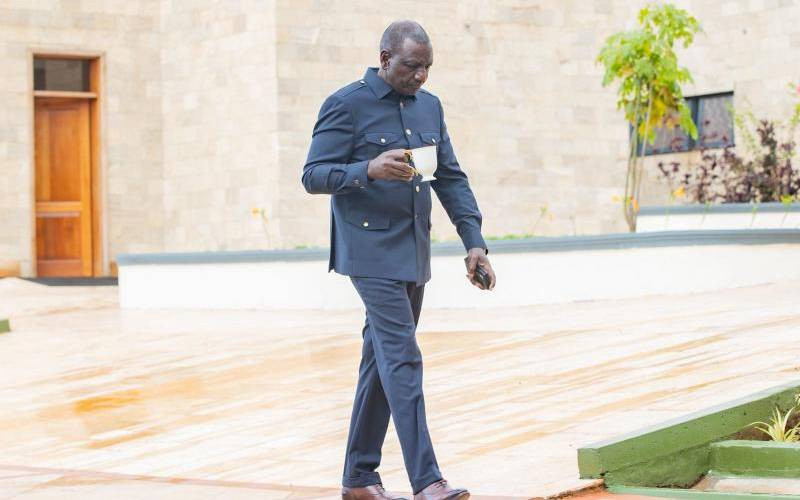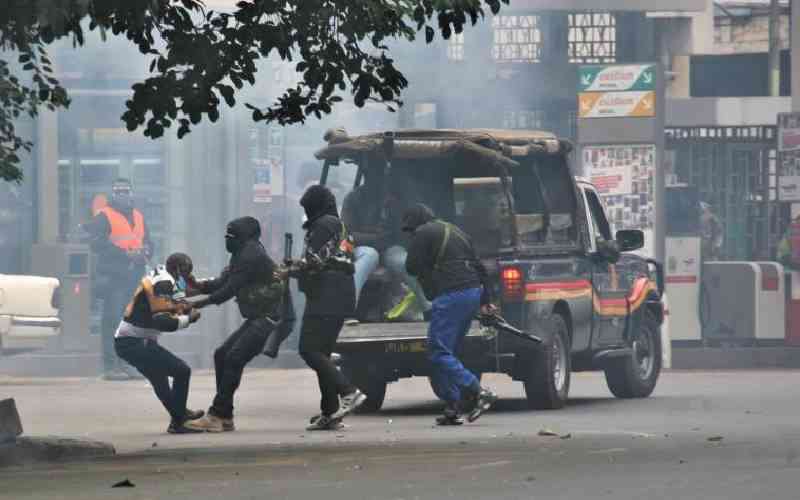What is the primordial principle that creates the need and drive for political parties in any polity to merge? Of course it is all about the consolidation of the “owned” political capital and the strategic acquisition of the political “wealth” that is perceived to be somewhat potent and relatively easy to be decoyed.
The political mergers, whether through the formation of coalitions or dissolution of the political parties, seek to ensure that the activity of capturing political power and formation of government is enhanced. After all, this (capturing of power) is the primary end of the existence of political parties and therefore, the mergers only serve as a means.
Political mergers aren’t new in the Kenyan polity. The phenomena can be clearly traced to the independence period, through the 1970s up to the last decade of the First Republic, just before the advent of the Second Liberation. After the Second Liberation, which majorly involved the re-introduction of multi-party politics, mergers have taken place.
Recall the merger between the Kenya African National Union (KANU) then under the stewardship of the “professor” of politics and former president, Daniel Moi and the National Development Party (NDP) then under the leadership of the enigmatic political persona of Raila Odinga. This happened in March 2002 in which NDP was dissolved hence, resulting in the formation of ‘New’ KANU. How “new” KANU had become was in itself a semi-mystical disposition.
After the alleged political dishonesty (A Kenyanised version of Machiavellianism) exhibited by President Moi by endorsing Project Uhuru, the disgruntled elements who were graciously seeking for Moi’s political anointment to vie for the presidency hurriedly decamped to another political outfit; the Liberal Democratic Party (LDP). LDP then formed a coalition with the National Alliance of Kenya, which comprised of Ford Kenya, the Democratic Party and the Social Democratic Party resulting in the formation of the political behemoth in the name of National Alliance Rainbow Coalition (NARC).
NARC’s political waning was imminent following the failure by President Mwai Kibaki to honor the famous “MoU”, another illustration of the Kenyanised form of Machiavellianism. Furtherance to this, the 2005 referendum in which Kibaki’s camp was defeated resulted in the ultimate decapitation of NARC, as a coalition and not as a political party.
In late 2013, mergers of political parties on the basis of coalitions were the in-thing with the notable ones being the Coalition for Reforms and Democracy (CORD), the Jubilee Coalition, the Amani Coalition and the Eagle Alliance. Fast forward, most of the political parties making up the Jubilee Coalition are in the final stages of dissolving their structures to form the Jubilee Party.
So what exactly is the political feasibility of the soon-to-be new kid on the block, the Jubilee Party? The formation of this political outfit seeks to consolidate the ethnic composition of the individual political units that will be dissolved very soon. I am skeptical that this party is a bridge to nationhood, a factor that has dodged the Kenyan political landscape for many years. Its formation serves as a well-orchestrated scheme and strategy to secure numerical strength in the National Assembly and the Senate.
As it stands right now, The National Alliance (TNA) and the United Republican Party (URP) alone guarantee the Jubilee Party approximately 160 seats in the National Assembly. This is of course minus the other parties that are set to undergo dissolution. In the Senate, TNA and URP alone have 20 elected Senators and so you can figure out how the dissolution will give the Jubilee Party numerical advantage as a single political entity and this means access to more financial resources by virtue of the law.
Aware of the presence of smaller parties in their political backyards that could act as political safe havens for the perceived rebels, President Kenyatta and his deputy William Ruto embarked on this political mission. A rather intriguing as well as interesting fact lies in the proposed framework that will lock out the losers of the party primaries from running for the various seats as they may decamp to other parties or contest as independent candidates.
The advantage of the dissolution of the Jubilee Coalition affiliated parties is that it reduces the number of irrelevant parties that exist. A reduction in the number of political parties does not imply that the democratic space will shrink. On this, the former Prime Minister Raila Odinga and Deputy Prime Minister Musalia Mudavadi have a strong view that the formation of Jubilee Party is as good as advocating for a single party state. On my part, I do not endorse this political perspective. Most individuals have contorted thoughts that the more the political parties, the larger the democratic space.
The merger of the political parties, whether through coalitions or dissolution, needs to be hinged and anchored on the ideological subscriptions of the respective entities through an inclusive mechanism. The culture of forming new parties every now and then is a pointer to ideological inconsistency and incongruence in the political beliefs and values that bedevils Kenyan politicians. This is political immorality.
Having parties that embrace and practice a particular ideology in Kenya has proved to be a reverie and thinking of such makes matters even more complex. Will the Jubilee Party stand the test of time? Maybe for the 2017 general election but its vibrancy just before the 2022 general election is a bit doubtful.
The advent of political parties in Kenya that will act as mechanisms for the convergence of nationhood is strongly dependent on proper institutionalization of these entities and one underlying tenet to achieve this is by allowing the electorates to own the parties rather than the few politicians. But as of now, mergers are not the ultimate answers to the promotion of national unity.
Stay informed. Subscribe to our newsletter
 The Standard Group Plc is a
multi-media organization with investments in media platforms spanning newspaper
print operations, television, radio broadcasting, digital and online services. The
Standard Group is recognized as a leading multi-media house in Kenya with a key
influence in matters of national and international interest.
The Standard Group Plc is a
multi-media organization with investments in media platforms spanning newspaper
print operations, television, radio broadcasting, digital and online services. The
Standard Group is recognized as a leading multi-media house in Kenya with a key
influence in matters of national and international interest.
 The Standard Group Plc is a
multi-media organization with investments in media platforms spanning newspaper
print operations, television, radio broadcasting, digital and online services. The
Standard Group is recognized as a leading multi-media house in Kenya with a key
influence in matters of national and international interest.
The Standard Group Plc is a
multi-media organization with investments in media platforms spanning newspaper
print operations, television, radio broadcasting, digital and online services. The
Standard Group is recognized as a leading multi-media house in Kenya with a key
influence in matters of national and international interest.





